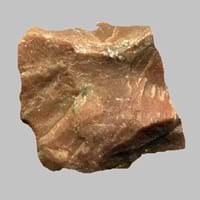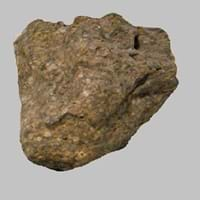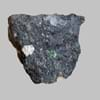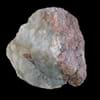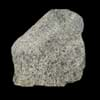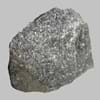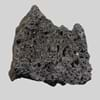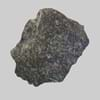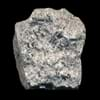Rhyolite and Tuff
Definition
Definition
Rhyolite is a fine-grained igneous rock which is rich in silica
Tuff is a type of rock made of volcanic ash ejected from a vent during a volcanic eruption
History
Origin
North America
Italy
Discoverer
Ferdinand von Richthofen
Unknown
Etymology
From German Rhyolit, from Greek rhuax lava stream + lithos stone
From a Latin word tophous then in Italian tufo and finally tuff
Class
Igneous Rocks
Igneous Rocks
Sub-Class
Durable Rock, Hard Rock
Durable Rock, Medium Hardness Rock
Family
Group
Volcanic
Volcanic
Other Categories
Coarse Grained Rock, Opaque Rock
Fine Grained Rock, Opaque Rock
Texture
Texture
Aphanitic, Glassy, Porphyritic
Clastic, Pyroclastic
Color
Grey, White, Light Black
Brown, Grey, Yellow
Maintenance
More
More
Durability
Durable
Durable
Water Resistant
Yes
Yes
Scratch Resistant
Yes
Yes
Stain Resistant
Yes
No
Wind Resistant
Yes
No
Acid Resistant
Yes
No
Appearance
Banded
Dull, Vesicular and Foilated
Uses
Architecture
Interior Uses
Decorative Aggregates, Homes, Hotels, Interior Decoration, Kitchens
Decorative Aggregates, Entryways, Flooring, Homes, Interior Decoration
Exterior Uses
As Building Stone, As Facing Stone, Paving Stone, Office Buildings
As Building Stone, As Facing Stone, Garden Decoration, Office Buildings, Paving Stone
Other Architectural Uses
Not Yet Used
Curbing
Industry
Construction Industry
Arrowheads, As Dimension Stone, Building houses or walls, Construction Aggregate, Cutting Tool, for Road Aggregate, Knives
Building houses or walls, Construction Aggregate
Medical Industry
Not Yet Used
Not Yet Used
Antiquity Uses
Artifacts
Artifacts, Monuments, Sculpture, Small Figurines
Other Uses
Commercial Uses
Gemstone, Laboratory bench tops, Jewelry
Creating Artwork
Types
Types
Pumice Rocks, Obsidian Rocks, Perlite Rocks, Porphyritic Rocks.
Welded tuff, Rhyolitic tuff, Basaltic tuff, Trachyte tuff, Andesitic tuff and Ignimbrite.
Features
Acidic in nature, Available in lots of colors
Always found as volcanic pipes over deep continental crust
Archaeological Significance
Monuments
Not Yet Used
Used
Famous Monuments
Not Applicable
Easter Island in the Polynesian Triangle, Pacific Ocean
Sculpture
Not Yet Used
Used
Famous Sculptures
Not Applicable
Data Not Available
Pictographs
Not Used
Used
Petroglyphs
Not Used
Used
Figurines
Not Yet Used
Used
Fossils
Absent
Absent
Formation
Formation
Rhyolite is a felsic extrusive rock and due to its high silica content, rhyolite lava is very viscous and is volcanic equivalent of granite.
Tuff is formed when large masses of ash and sand which are mixed with hot gases are ejected by a volcano and avalanche rapidly down its slopes.
Composition
Mineral Content
Biotite, Feldspar, Hornblade, Plagioclase, Pyroxene, Quartz
Calcite, Chlorite
Compound Content
Ca, Fe, Potassium Oxide, Mg, Potassium, Silicon Dioxide, Sodium
Hydrogen Sulfide, Sulfur Dioxide
Transformation
Metamorphism
Yes
Yes
Types of Metamorphism
Burial Metamorphism, Cataclastic Metamorphism, Regional Metamorphism
Burial Metamorphism, Cataclastic Metamorphism, Contact Metamorphism, Hydrothermal Metamorphism, Impact Metamorphism, Regional Metamorphism
Weathering
Yes
Yes
Types of Weathering
Biological Weathering, Chemical Weathering, Mechanical Weathering
Biological Weathering, Chemical Weathering, Mechanical Weathering
Erosion
Yes
Yes
Types of Erosion
Chemical Erosion, Sea Erosion, Water Erosion, Wind Erosion
Chemical Erosion, Coastal Erosion, Glacier Erosion, Sea Erosion, Water Erosion, Wind Erosion
Properties
Physical Properties
Hardness
6-7
4-6
Grain Size
Large and Coarse Grained
Fine Grained
Fracture
Sub-conchoidal
Uneven
Streak
Colorless
White
Porosity
Highly Porous
Highly Porous
Luster
Earthy
Vitreous to Dull
Compressive Strength
140.00 N/mm2
15
243.80 N/mm2
5
Cleavage
Not Available
Not Available
Toughness
2
Not Available
Specific Gravity
2.65-2.67
2.73
Transparency
Opaque
Opaque
Density
2.4-2.6 g/cm3
1-1.8 g/cm3
Thermal Properties
Specific Heat Capacity
Not Available
0.20 kJ/Kg K
25
Resistance
Heat Resistant, Wear Resistant
Heat Resistant, Impact Resistant, Pressure Resistant, Wear Resistant
Reserves
Deposits in Eastern Continents
Asia
China, India
Afghanistan, Armenia, Azerbaijan, Burma, Cambodia, China, India, Indonesia, Iran, Japan, Malaysia, Mongolia, Nepal, North Korea, Pakistan, Saudi Arabia, Syria, Taiwan, Thailand, Turkey, Vietnam, Yemen
Africa
Angola, Egypt, Madagascar, Namibia, Nigeria, South Africa
Cameroon, Cape Verde, Eritrea, Ethiopia, Kenya, Libya, Madagascar, Nigeria, Rwanda, South Africa, Sudan, Uganda
Europe
Germany, Iceland, Ireland, Italy, Spain
France, Georgia, Germany, Greece, Iceland, Italy, Netherlands, Poland, Portugal, Spain, United Kingdom
Others
Not Yet Found
Antarctica, Hawaii Islands
Deposits in Western Continents
North America
Canada, USA
Canada, Costa Rica, Panama, USA
South America
Argentina, Bolivia, Chile, Colombia, Ecuador, Peru, Venezuela
Argentina, Bolivia, Brazil, Chile, Ecuador, Paraguay
Deposits in Oceania Continent
Australia
New Zealand, Queensland, Western Australia
Central Australia, Western Australia
All about Rhyolite and Tuff Properties
Know all about Rhyolite and Tuff properties here. All properties of rocks are important as they define the type of rock and its application. Rhyolite and Tuff belong to Igneous Rocks.Texture of Rhyolite is Aphanitic, Glassy, Porphyritic whereas that of Tuff is Clastic, Pyroclastic. Rhyolite appears Banded and Tuff appears Dull, Vesicular and Foilated. The luster of Rhyolite is earthy while that of Tuff is vitreous to dull. Rhyolite is available in grey, white, light black colors whereas Tuff is available in brown, grey, yellow colors. The commercial uses of Rhyolite are gemstone, laboratory bench tops, jewelry and that of Tuff are creating artwork.
|
||
|
||
|
|
||
|
||
|
